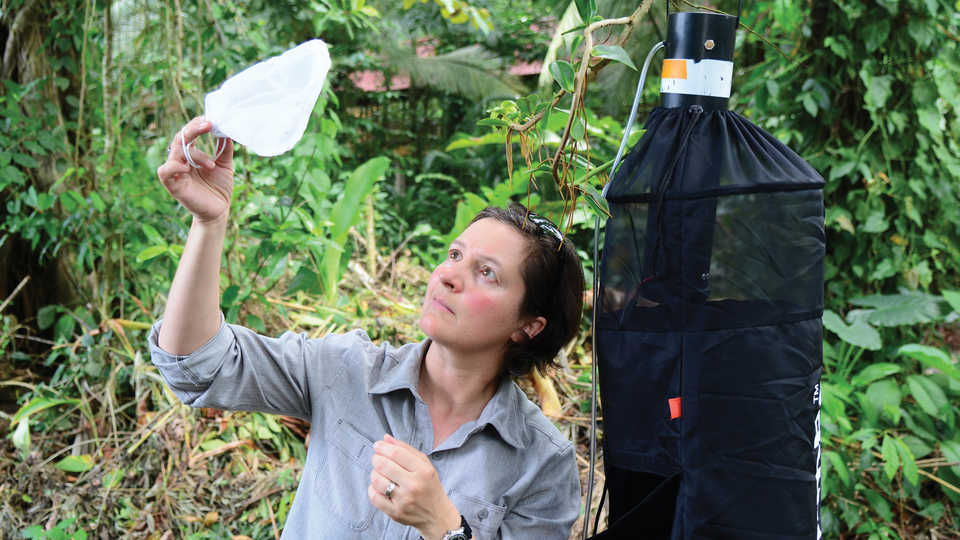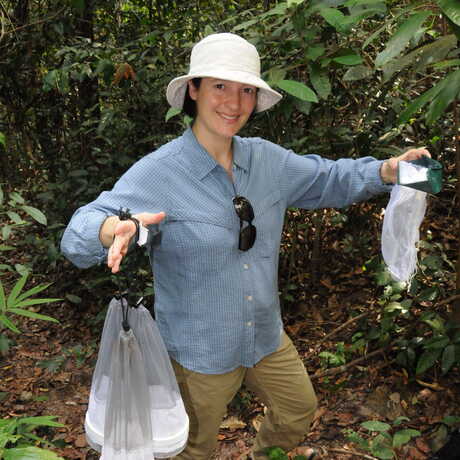As an undergraduate student, I volunteered in Liberia, West Africa, to lead an educational theater program designed to address basic public health issues. Before long, I contracted malaria, followed closely by a case of amoebic dysentery and a staphylococcal infection that all together landed me in a leper colony for treatment. An experience that would have spelled the end for most people’s enthusiasm for tropical adventure served as inspiration. I was instantly determined to specialize in parasitology, to better understand the evolution and transmission of microscopic organisms that make their hosts so profoundly ill.
Today, my research advances science and sustainability by making a direct connection between human health and the health of natural systems from the lens of biodiversity conservation and resilience. I am focusing on mosquito and mosquito-borne viruses that circulate in biodiverse natural systems, to understand the diversity of viromes in nature, identify potential viral pathogen progenitors, and identify the evolutionary and ecological factors that drive zoonotic events - the jumping of a pathogen from a non-human animal system into humans - and emerging infectious disease. We’re learning that biodiversity of the host and vector communities drives biodiversity of viruses in a way that could prevent invasion by disease agents. For example, in remote forested environments there is a high diversity of vertebrates and mosquitoes as well as their microbes, few of which have been associated with disease, whereas in urban and peri-urban environments diversity drops and the community becomes dominated by a handful of invasive mosquito species known to carry dengue, Zika, chikungunya, Japanese encephalitis, and other pathogens. These invasive disease agents continue to rapidly evolve adaptations that result in increasingly severe disease with urbanization and the globalization of human society.



